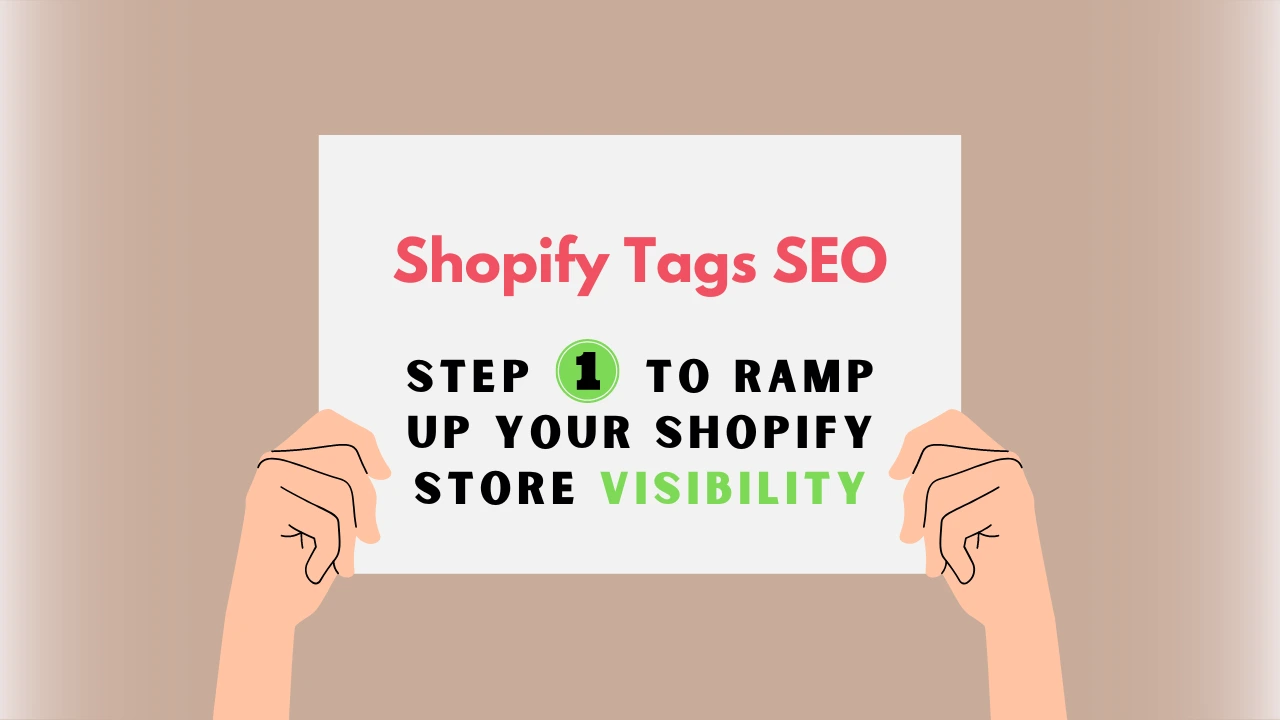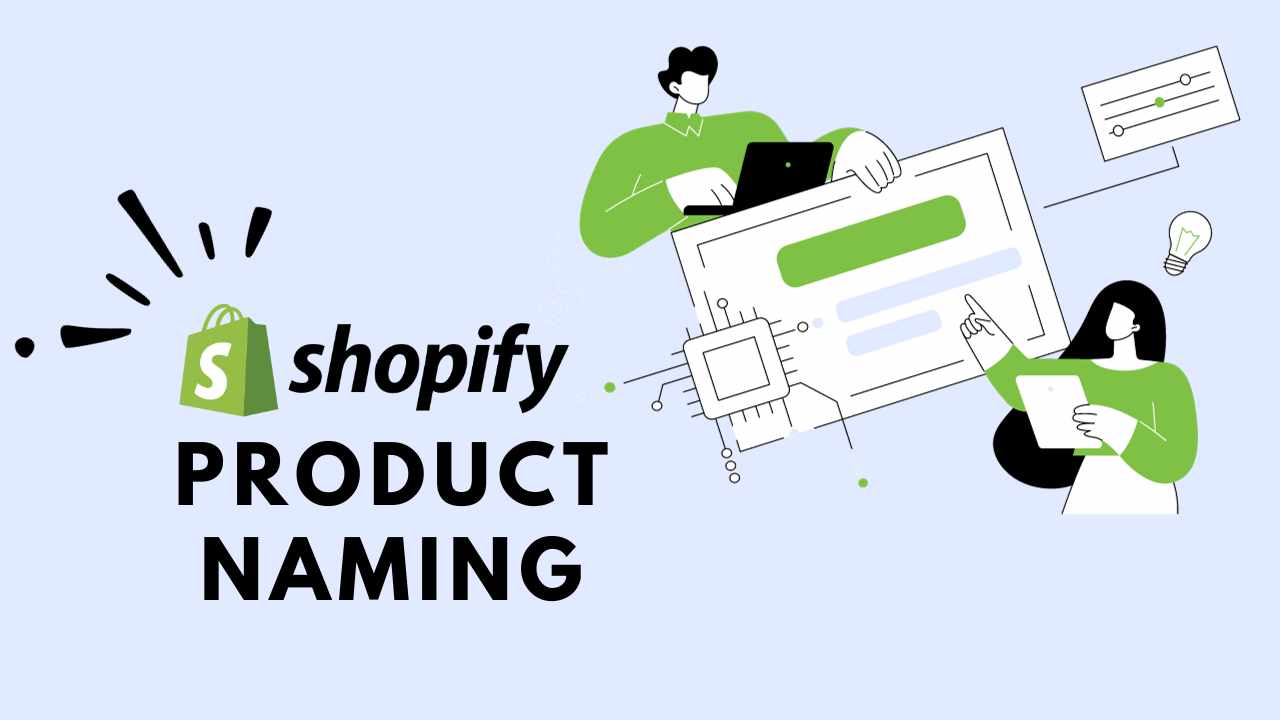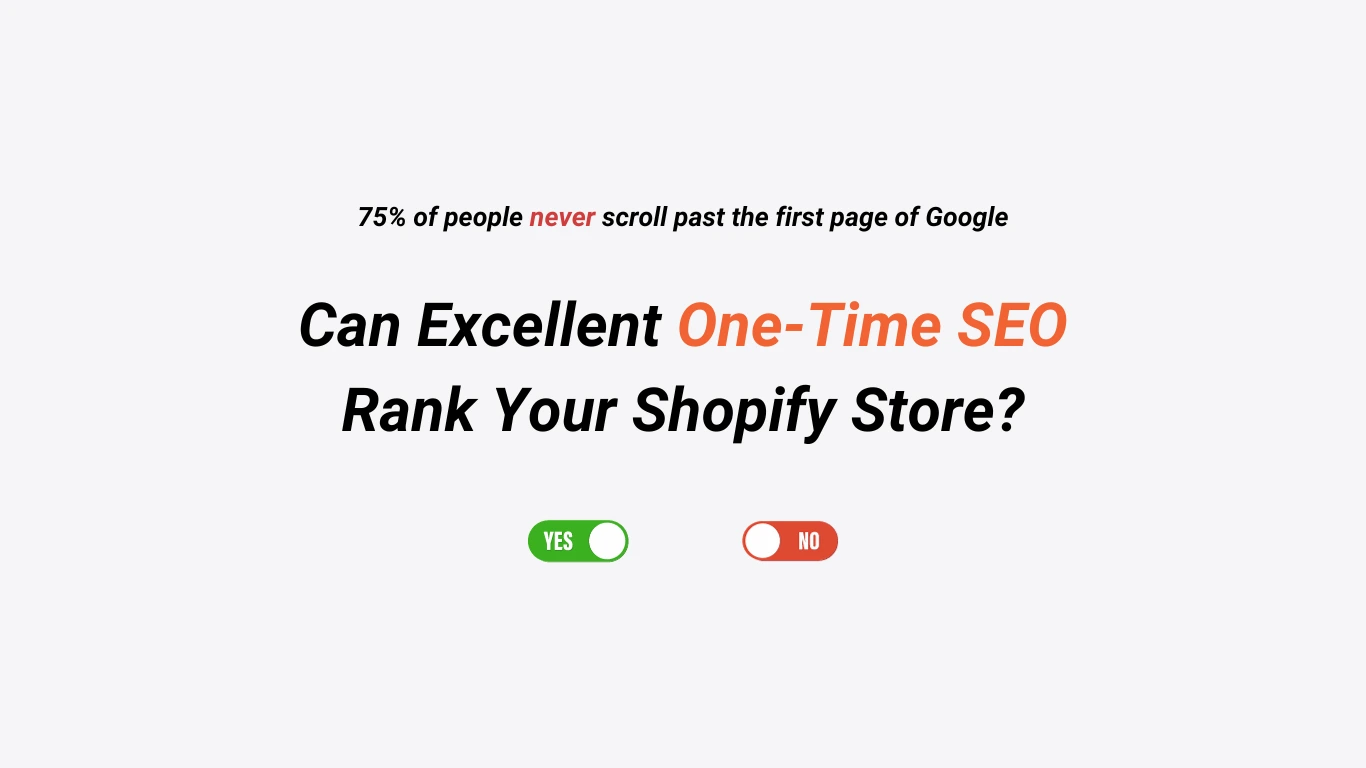Let’s just kick this off by stating that Shopify Tags SEO is the core of your store data.
When managed efficiently, Shopify Tags allow businesses to boost their visibility in a matter of days. Online stores are sprouting like wildflowers in the rain. Amidst all this, the importance of standing out with the best Shopify Tags shines brighter than ever.
Shopify Tags SEO: What are Tags on Shopify?
Shopify Tags are labels that essentially allow organizing products on the storefront. Additionally, they also prove to be efficient in categorizing content for better search rankings. Tags are great for managing and organizing a store as they are not visible to the customers. These values are only meant to help the search engine and your store management process. Isn’t that great?
In order to really understand the core of Shopify Tags SEO, you must know what tags are. These comma-separated values add much more to the storefront than you think.
Shopify Tags help sellers classify and categorize the following store data:
- Products
- Blog Posts
- Orders
- Returns
- Transfers
- Customer Data
You see, Shopify Tags SEO is more than just metadata.
They are the key to managing stored data efficiently.
Read our guide Shopify H1 Tag Demystified to understand how Shopify Tags SEO boosts web rankings.
Do Shopify Tags Help SEO?
Shopify Tags help SEO as they add relevancy to any Shopify website. If you are a keen reader of our guides, then by now you would already know why relevancy is so important for SEO. Relevant tags on Shopify website URLs, titles, and products help search engines like Google to rank your website in front of the targeted audience. Shopify Tags allow businesses to sort and categorize items according to distinct attributes.
In our previous guides, we discussed how crucial it is to maintain the Shopify SKU System. While that helps with inventory management, similarly, Shopify Tags SEO helps with better categorization and store visibility on Google.
The true journey to Shopify’s success begins with optimizing the store for search engines.
Shopify Tags SEO creates the base for solid metafield.
Don’t know what that is?
What is Metafield in Shopify?
Metafield is a way to add additional information about a page or a product on your Shopify website. In a non-tech language, metafields (or custom fields) allow businesses to put extra information on their store. Moreover, this custom field information is different, and it isn’t included in Shopify’s basic configuration. Here are some specifics of metafields in Shopify.
- Namespace: A container for a group of metafield.
- Key: The name for the metafield.
- Type: The type of data that the metafield stores.
To help you understand Shopify metafields better, here’s an example.
Let’s say you have an ice cream brand. ????
On your Shopify store, you offer customers doorstep delivery of customized frozen ice creams and desserts. With metafields, you can mention the volume of ice cream tubs. You can also mention if the flavors are non-veg, veg, or vegan, and so on.
You can also add launch dates, related products, and the list of ingredients in the ice cream.
So metafields are a way to attach more information about a product in your store.
Automate Product Tagging on Shopify
Automated form processing is able to save employees 3.6 hours a week as per Adobe Business. But automation goes a long way when it comes to Shopify’s automated product tagging. You can easily auto-tag products in Shopify with the help of dropdown boxes, checkboxes, and buttons. If you have a big inventory, then this can also be done with the help of smart tag apps.
Automated product tags are a great way to build workflows.
Our Shopify SEO Experts recommend the following apps to help you take up automated product tagging on your storefront:
Moreover, automated product tags on Shopify also facilitate abandoned cart recovery.
Businesses can automate emails to customers who have partially completed a purchase or abandoned their carts. You can also use the Shopify tags to filter the number of customers who have canceled their orders on your store.
Conclusion
In the fast-paced Shopify Business world, mastering SEO is non-negotiable. Shopify Tags SEO and Shopify meta tags emerge as influential tools. Optimizing your Tags can significantly amplify your Shopify store’s reach in the Google Search results. Thus, improving click-through rates, and ultimately driving conversions.
With our Shopify SEO Experts, give your store the competitive edge it needs to win customers in a busy marketplace.
Read our guide on Shopify Tags You Must Use in 2023.











